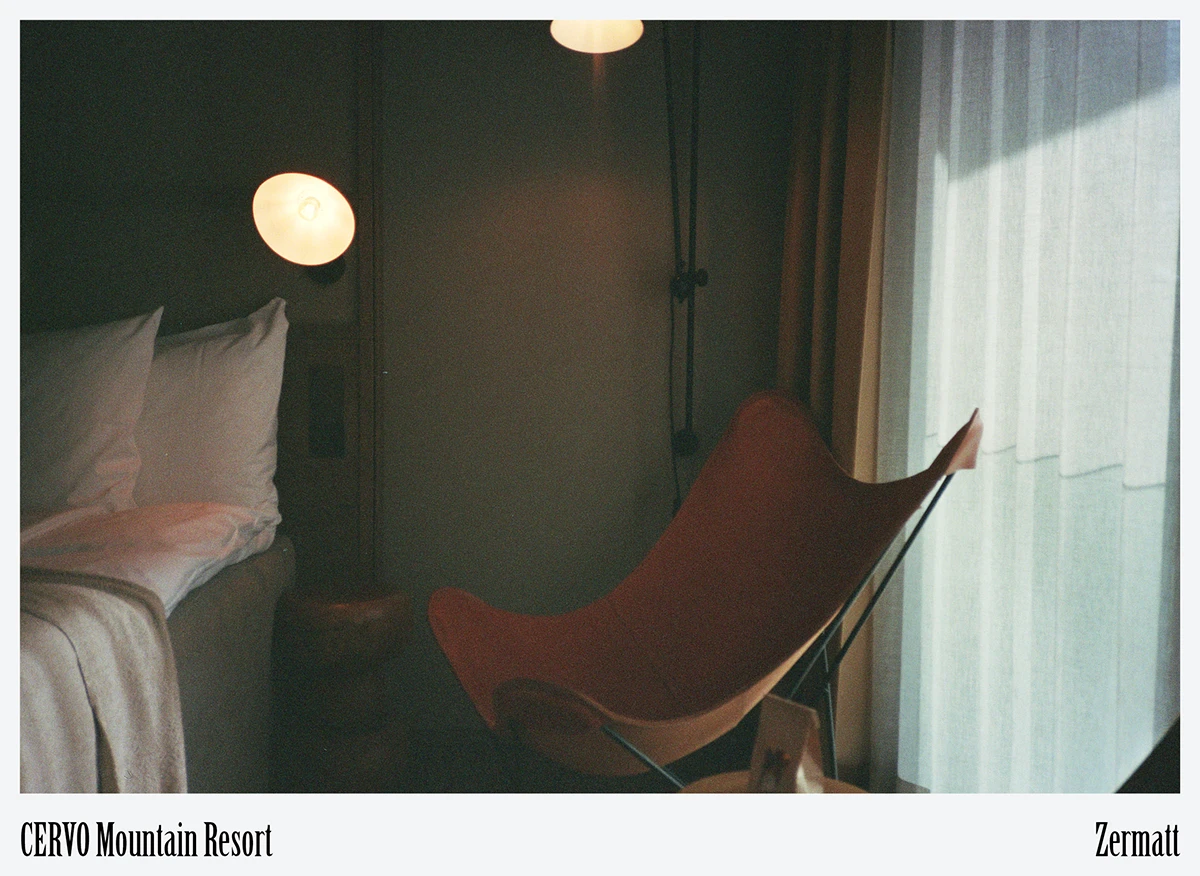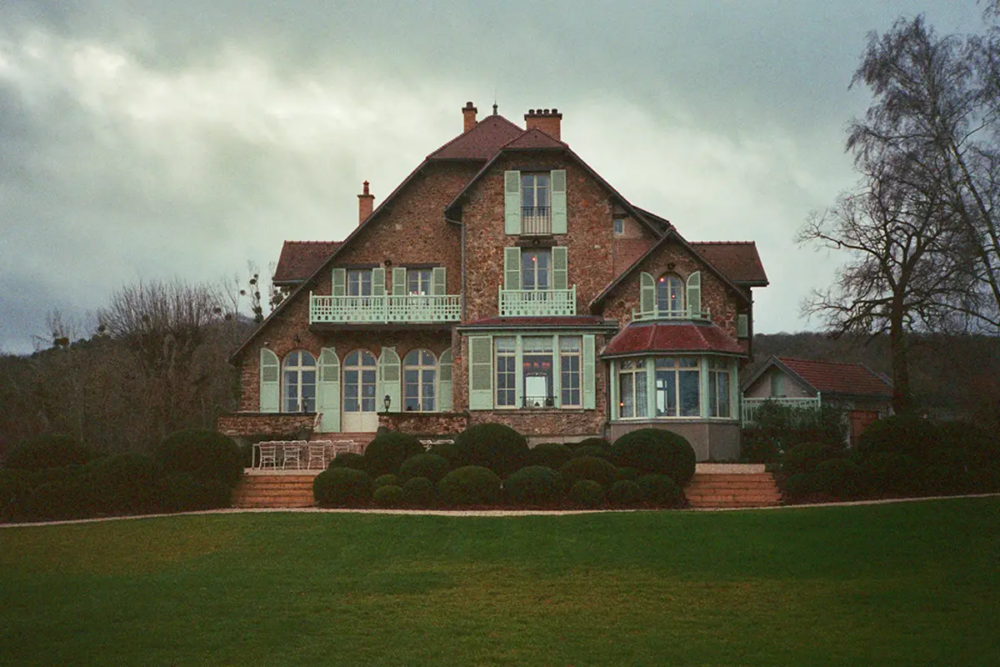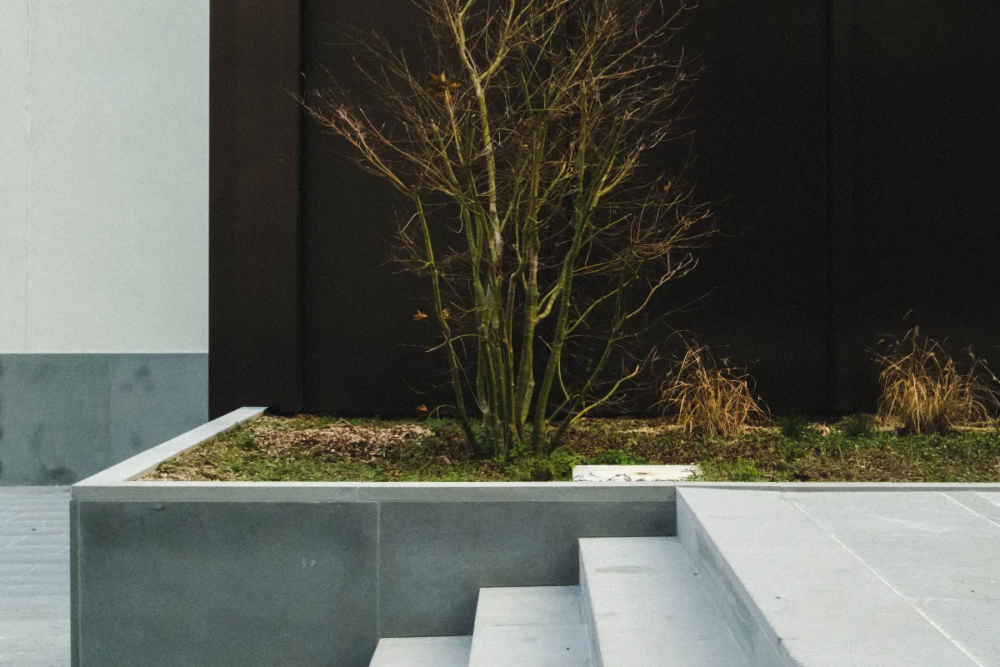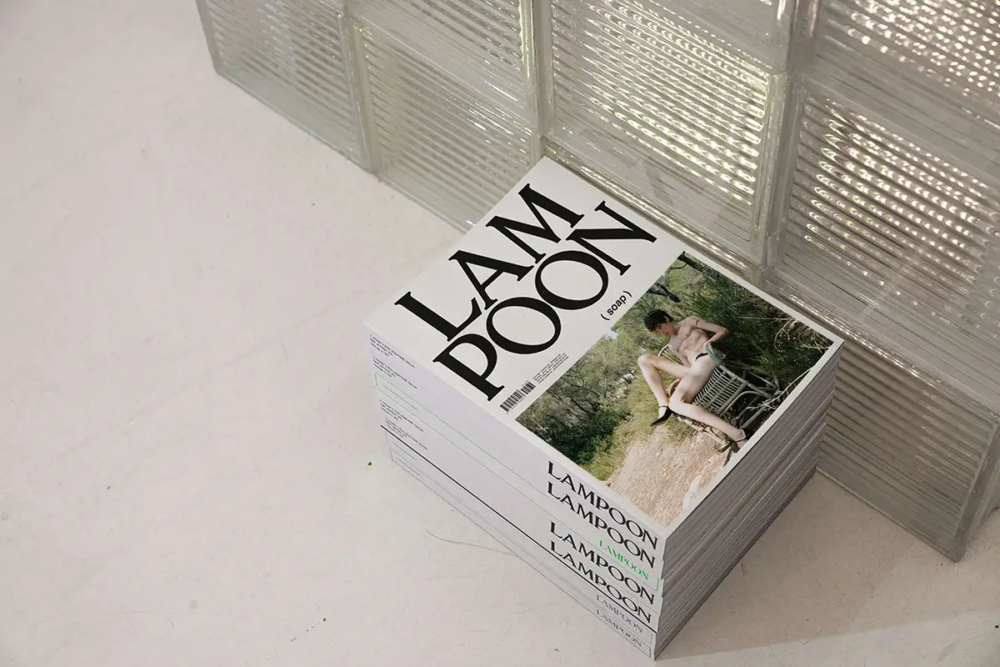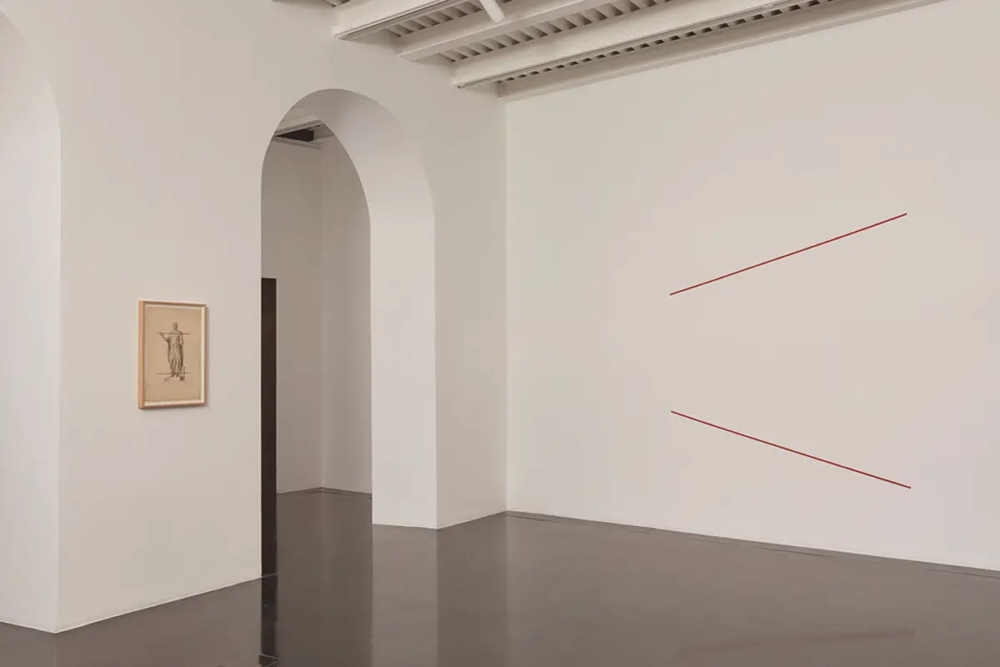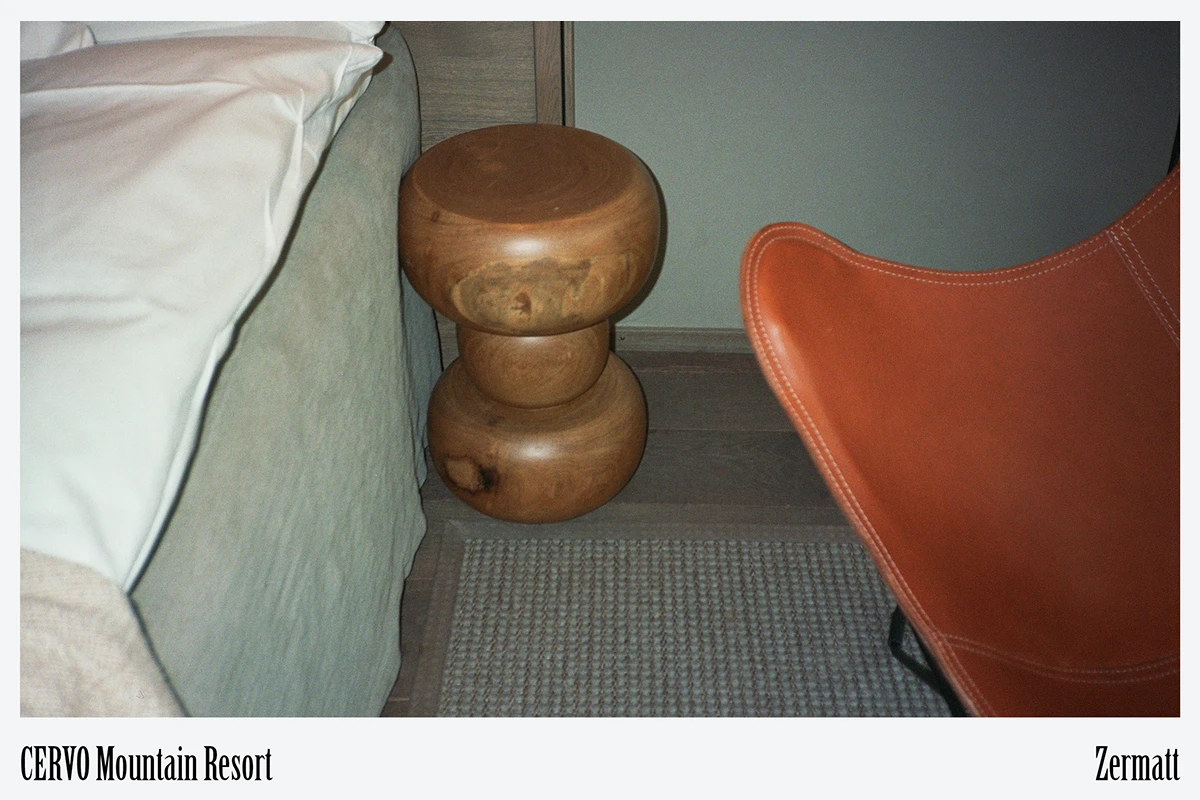
Cervo Mountain Resort and the weight of sustainability in a closed alpine system
Between Swiss mountain silence and technical infrastructure, Cervo Mountain Resort explores the limits of sustainability when it becomes architecture, routine, and material language
Cervo Mountain Resort: living beyond sustainability at the foot of the Matterhorn
Set on a natural terrace above Zermatt, where the built village gives way to alpine forest, Cervo Mountain Resort occupies a transitional zone—between elevation and settlement, between landscape and infrastructure. Its proximity to the Matterhorn is immediate but unexploited; the mountain is present throughout, yet not staged as spectacle. The resort integrates into the slope through materials and scale, but asserts its own rhythm within the terrain.
Since its renovation in 2020, Cervo has adopted sustainability as a structuring principle. Not as branding, but as a set of constraints that inform design, supply, and daily operation. Heating systems recover energy from wastewater and solar-fed geothermal loops; food supply chains are kept regional and seasonal; cleaning and cosmetic products are developed in-house with biodegradable ingredients. Rather than frame sustainability as innovation, the resort treats it as a form of accountability—both to place and to the systems it relies on.
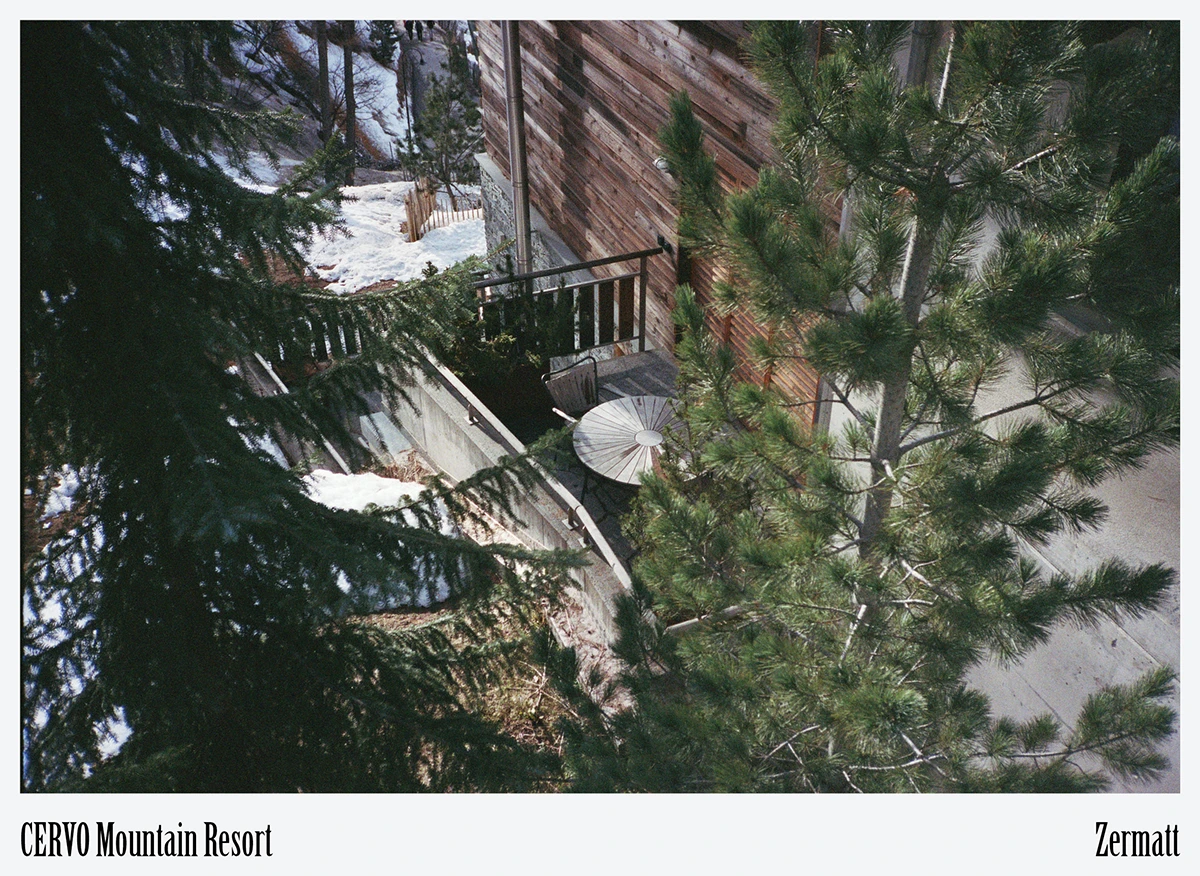
Circular economies in alpine tourism
Operating in a delicate mountain ecosystem, Cervo Mountain Resort anchors its strategy in long-term ecological thinking. Waste reduction is prioritized across departments, from zero-waste guest rooms to the use of natural cleaning agents and a proprietary line of cosmetics developed with biodegradable ingredients. Restaurants on-site—Bazaar, Ferdinand, and Madre Nostra—source up to ninety percent of their ingredients locally and seasonally, reducing the carbon impact of transport. Bazaar’s kitchen is mostly vegetarian, while Madre Nostra and Ferdinand’s offerings are also for more than a half plant-based, with an emphasis on naturally sourced ingredients like Valais herbs and mountain cheeses.
Beyond food, the resort’s supply chain favors regional producers and micro-enterprises over large corporations. Partnerships include Swiss-based start-ups such as Soeder (hygiene products), Vivi Kola (organic soft drinks), and Tropenhaus Frutigen (sustainable fish and produce), allowing for economic cycles that strengthen local economies while maintaining transparency in sourcing.
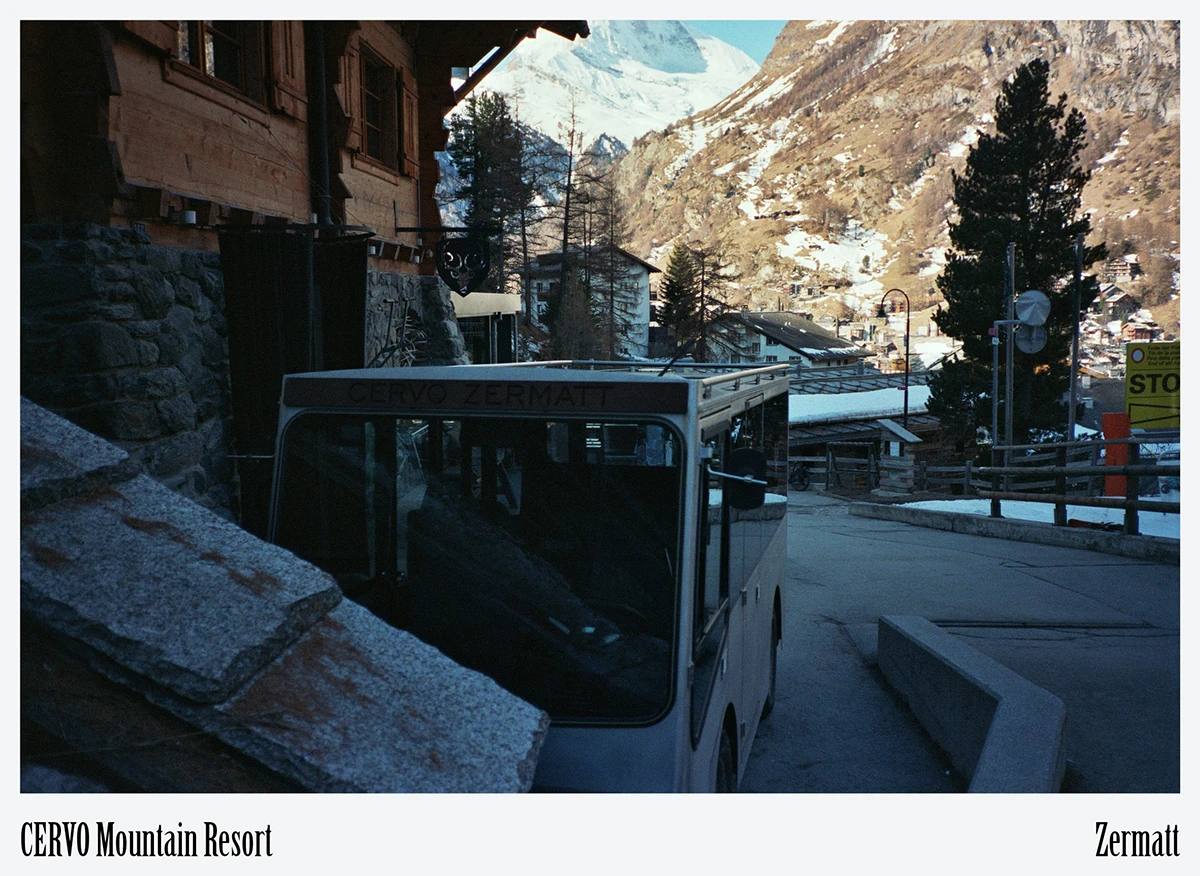
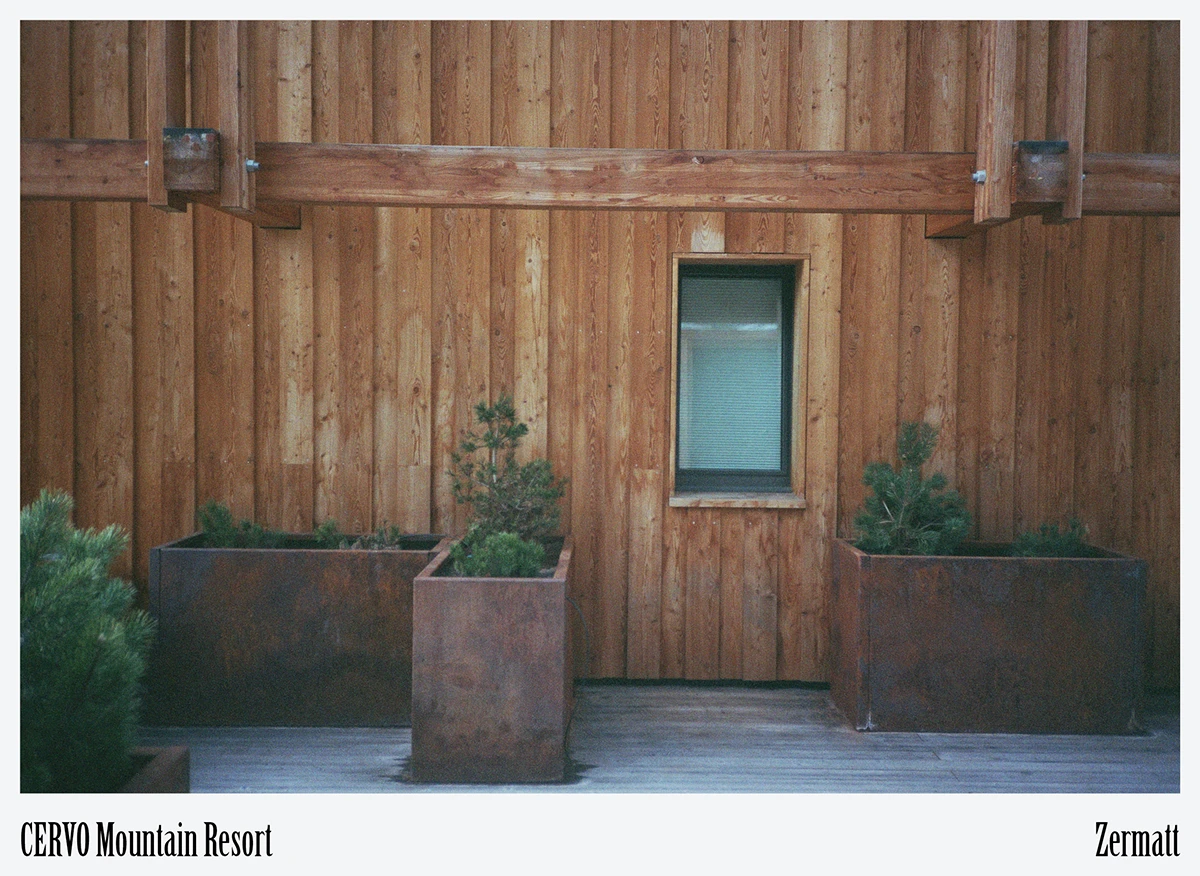
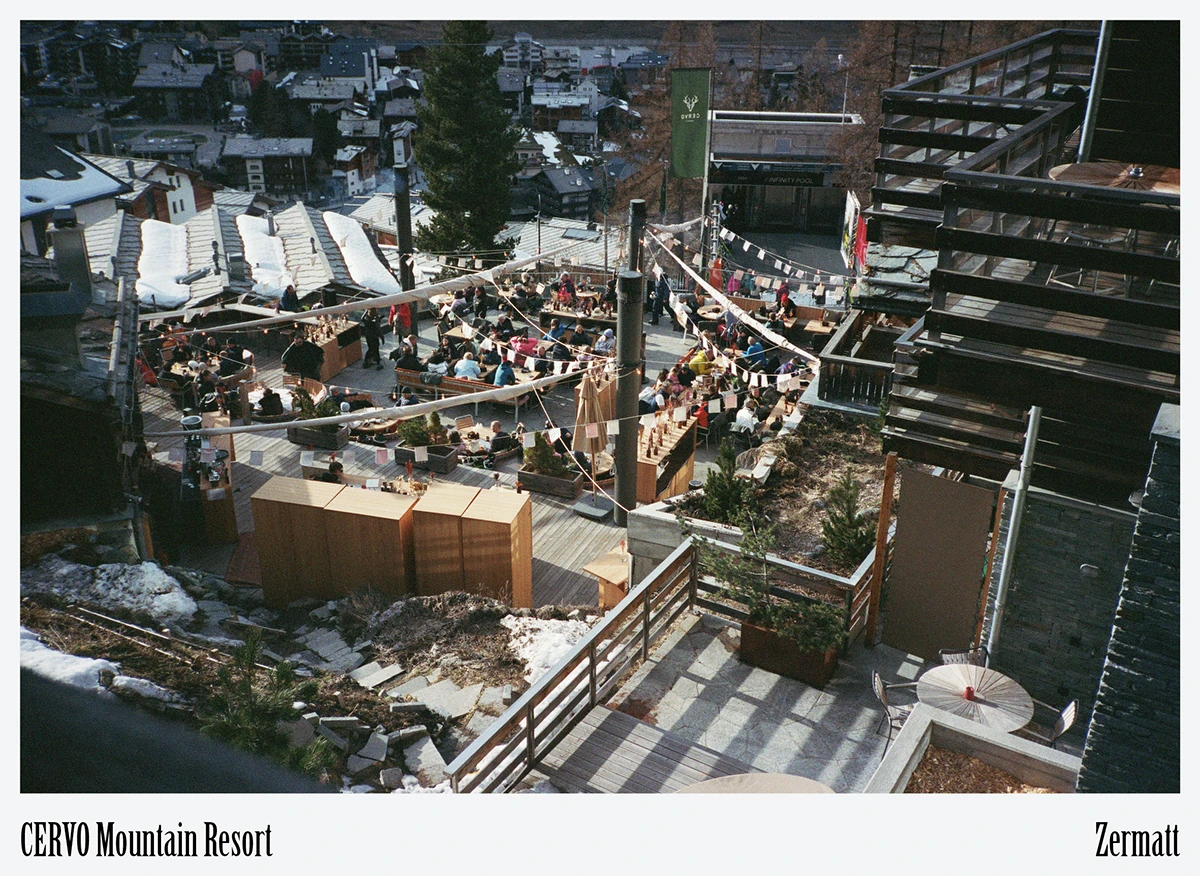
Energy systems: climate action solutions in practice
At Cervo, climate action solutions take the form of energy systems engineered to minimize fossil fuel dependency. The resort’s heating strategy is entirely renewable, with forty-eight percent of its energy derived from geothermal sources and fifty-two percent recovered from wastewater heat. These systems are designed to reuse thermal energy before it escapes into the environment—preheating water in a loop that significantly reduces overall consumption.
Solar panels, though currently responsible for less than one percent of total energy, are deployed innovatively. Installed on the balconies of Chalet VI, these collectors feed directly into the geothermal system, warming the surrounding ground and increasing the system’s winter efficiency.
Electricity throughout the resort is generated through Swiss hydropower—making Cervo effectively carbon neutral in both heating and electricity. A partnership with the Zurich-based nonprofit MyClimate enables guests to book a climate-compensated stay for a nominal fee of three Swiss francs per night, with Cervo doubling all contributions. In 2023, forty-five percent of bookings were carbon-compensated, amounting to over nineteen thousand Swiss francs in donations to verified environmental projects.
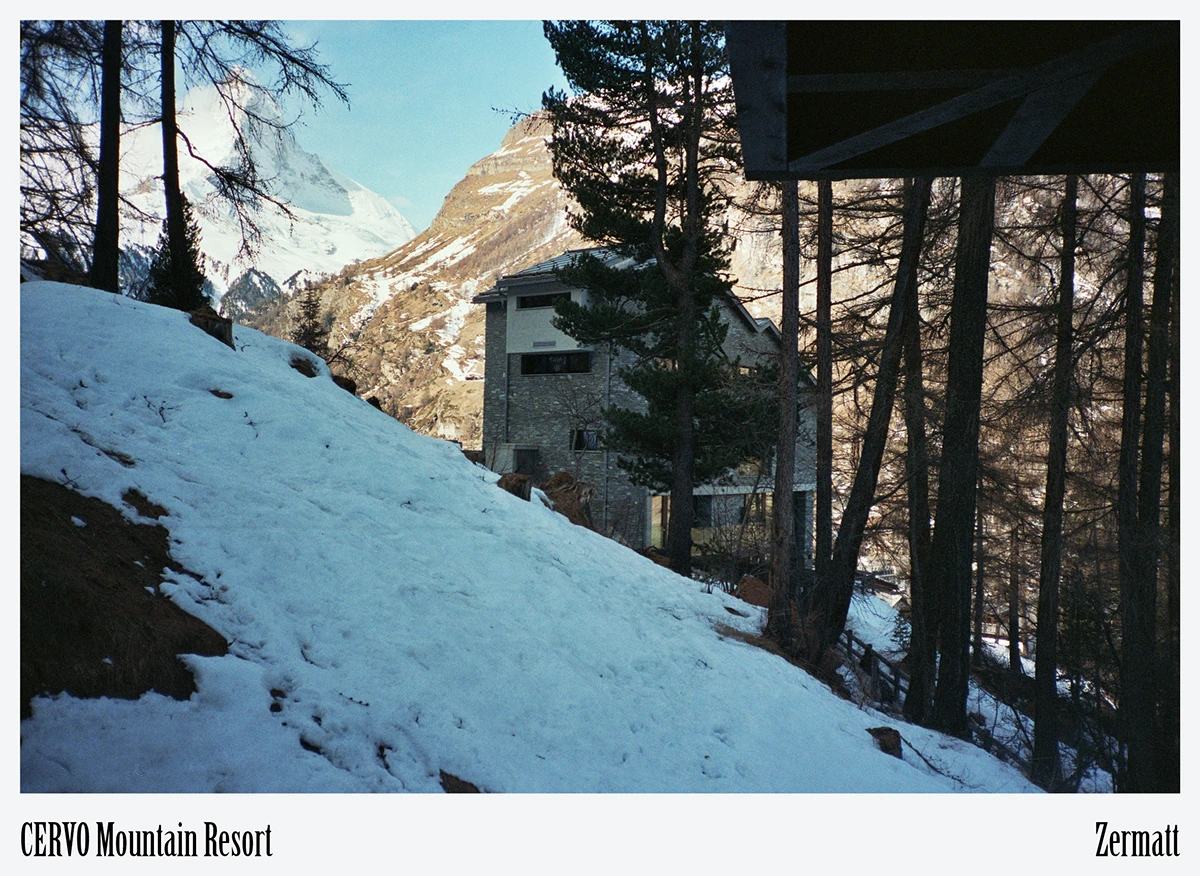
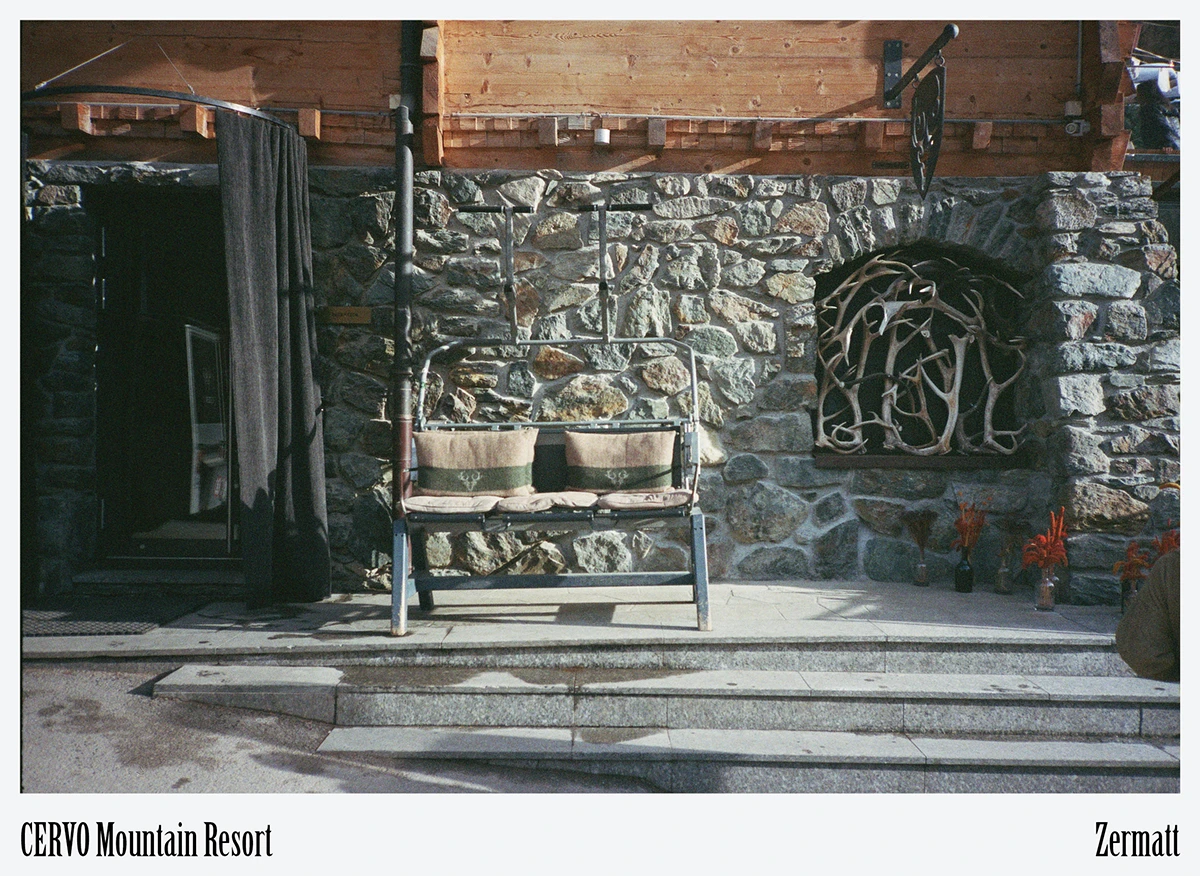
Raw materials and regenerative design
The interior design, curated by the German studio Dreimeta, reflects the same sustainable ethos. Natural materials dominate: wood, stone, wool and clay sourced from the Alpine region are combined with global influences, resulting in rooms that aims at being both grounded and cosmopolitan. The architectural language avoids unnecessary embellishment, aligning instead with principles of “raw architecture”—honest materials, visible structures, and low-impact construction.
This approach extends to the resort’s spatial typologies: three distinct lodge categories—Nomad, Alpinist, and Huntsman—offer stylistic variation without compromising energy efficiency or material integrity. Overlook Lodge, an annex located three hundred and fifty meters below the main resort, carries the same design DNA but was conceived for longer stays or apartment-style living.
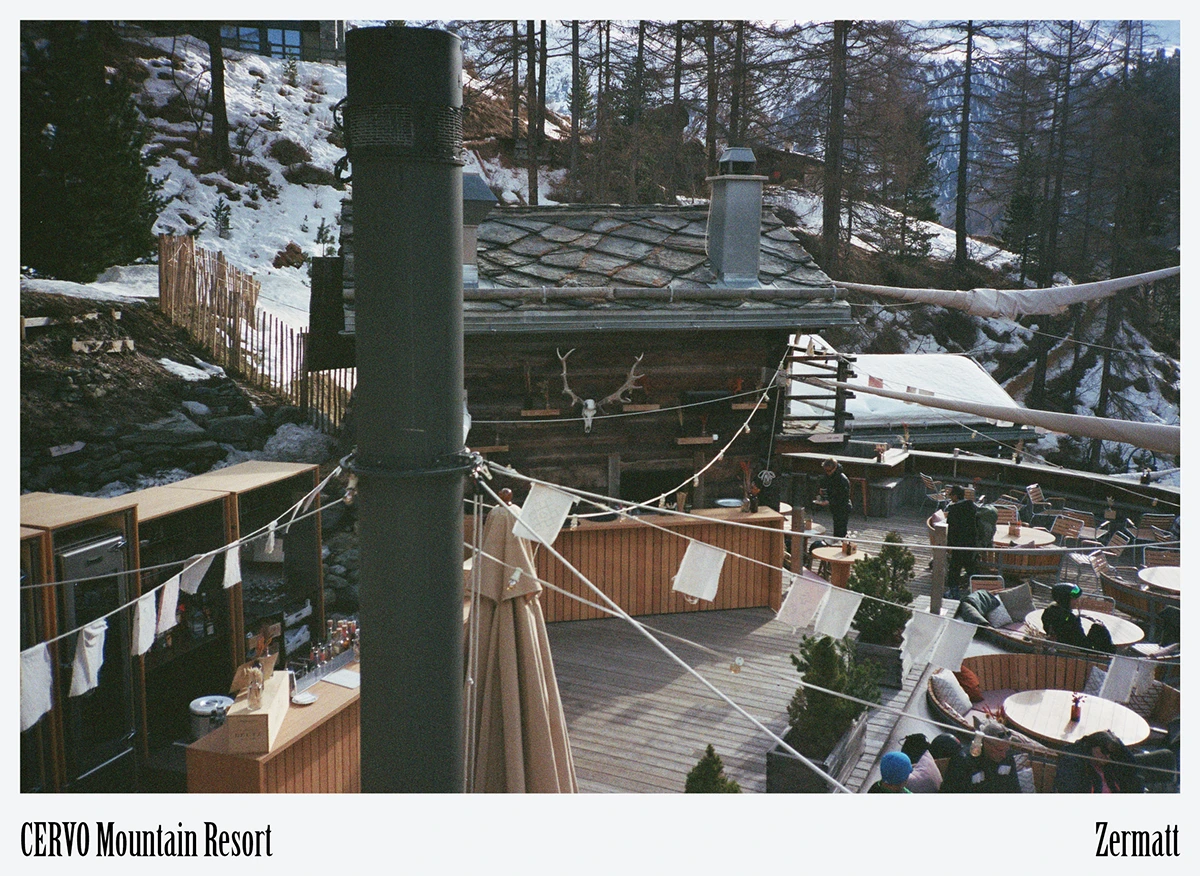
Naturally sourced ingredients and water ethics
Cervo’s restaurants are a key node in its sustainability narrative. By sourcing ingredients within a hundred and fifty kilometers radius whenever possible and favoring organic or biodynamic producers, the culinary offering is both environmentally and culturally rooted. Local meat is exclusively from free-range farms; cheeses are supplied by Binderalp and Horu, both small-scale artisanal operations. Menus shift with the seasons, integrating foraged herbs and alpine plants that double as wellness ingredients in the Ātman Mountain Spa.
Water is another focal point. As part of the “Water Is Right” foundation, Cervo donates ten percent of all water-related earnings to support clean water access in underserved regions. In 2023, twenty-one thousand four hundred Swiss francs were allocated to the installation of a solar-powered fountain in Kadapa, India, providing potable water to around two thousand people. Another ongoing project funds the construction of a water kiosk in Mekavaari Palli, designed to serve over two hundred and thirty families with clean, affordable water while strengthening local water governance.
These initiatives are not simply philanthropic but reflect a systems-based approach to sustainability. By coupling water use in hospitality with equitable access elsewhere, Cervo builds a network of responsibility that spans continents while addressing urgent planetary needs.
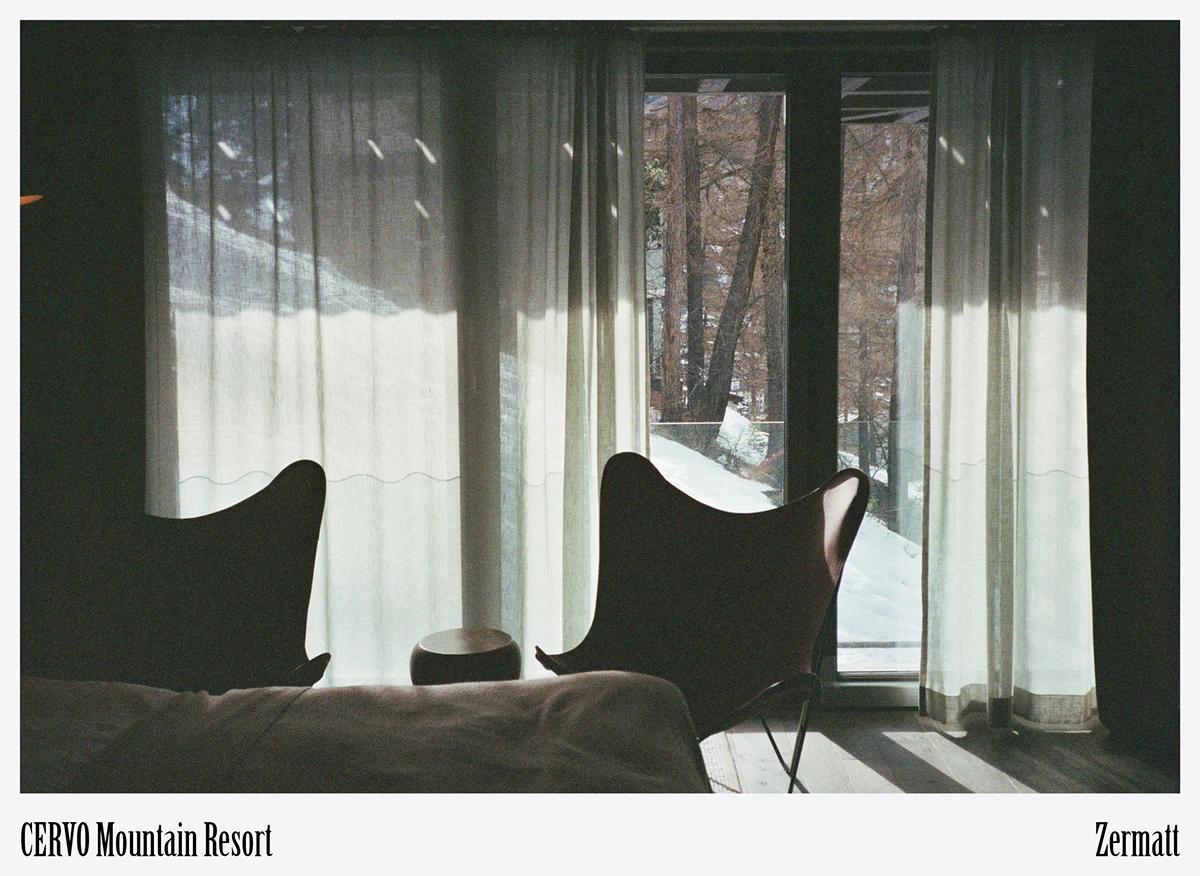
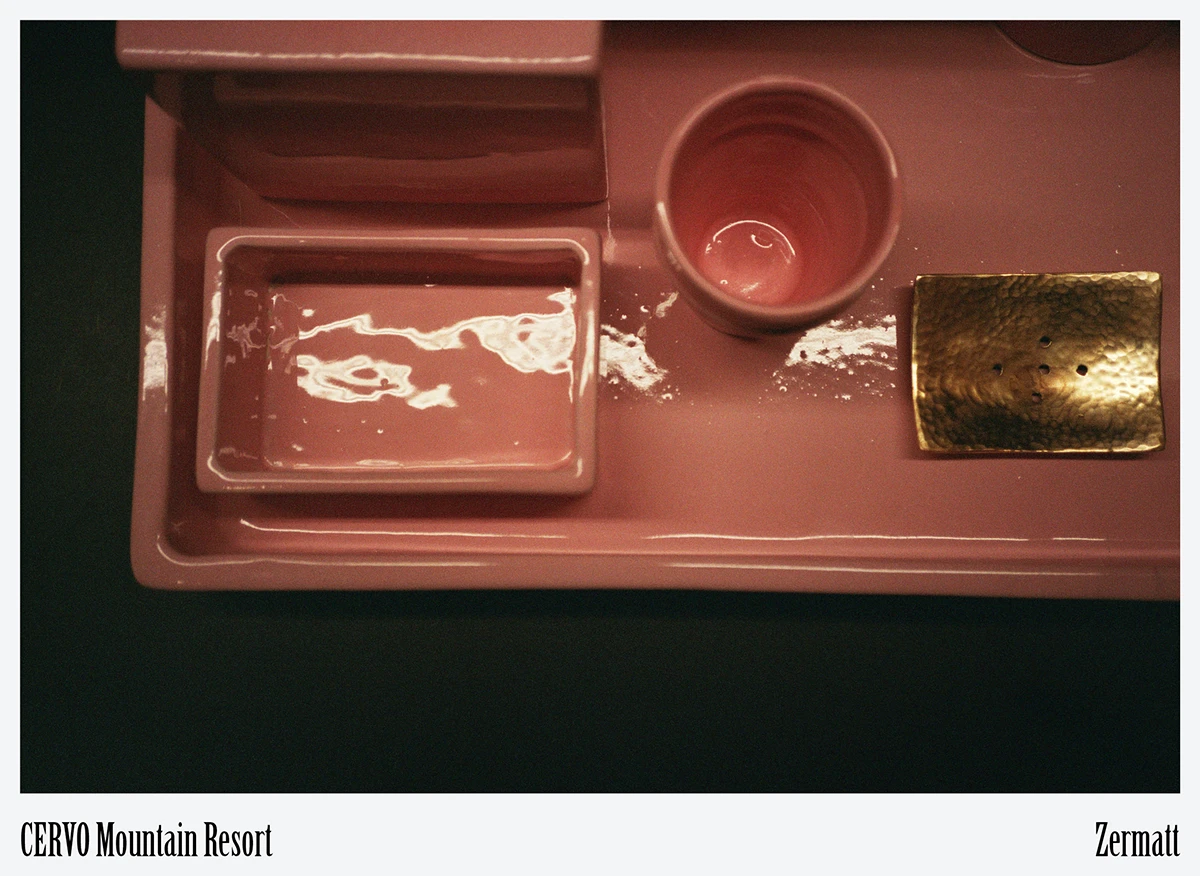
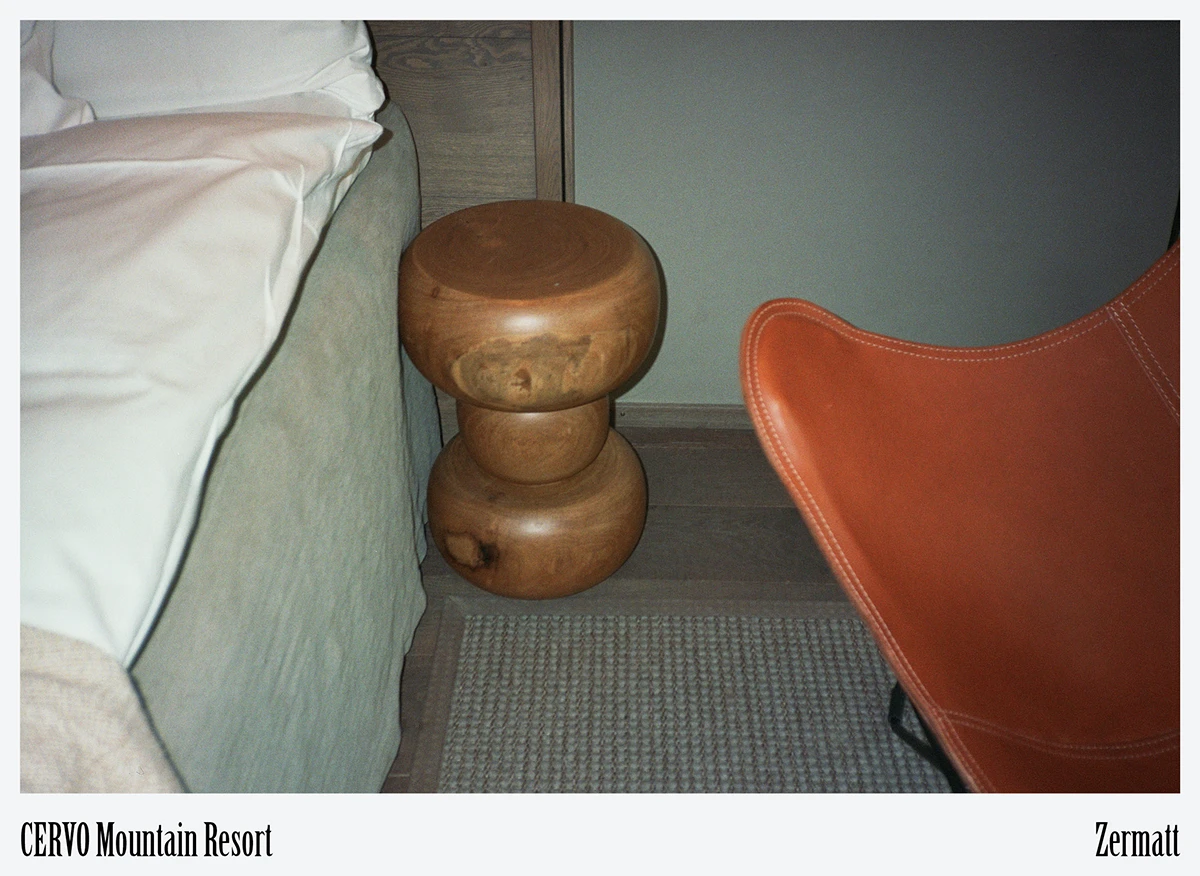
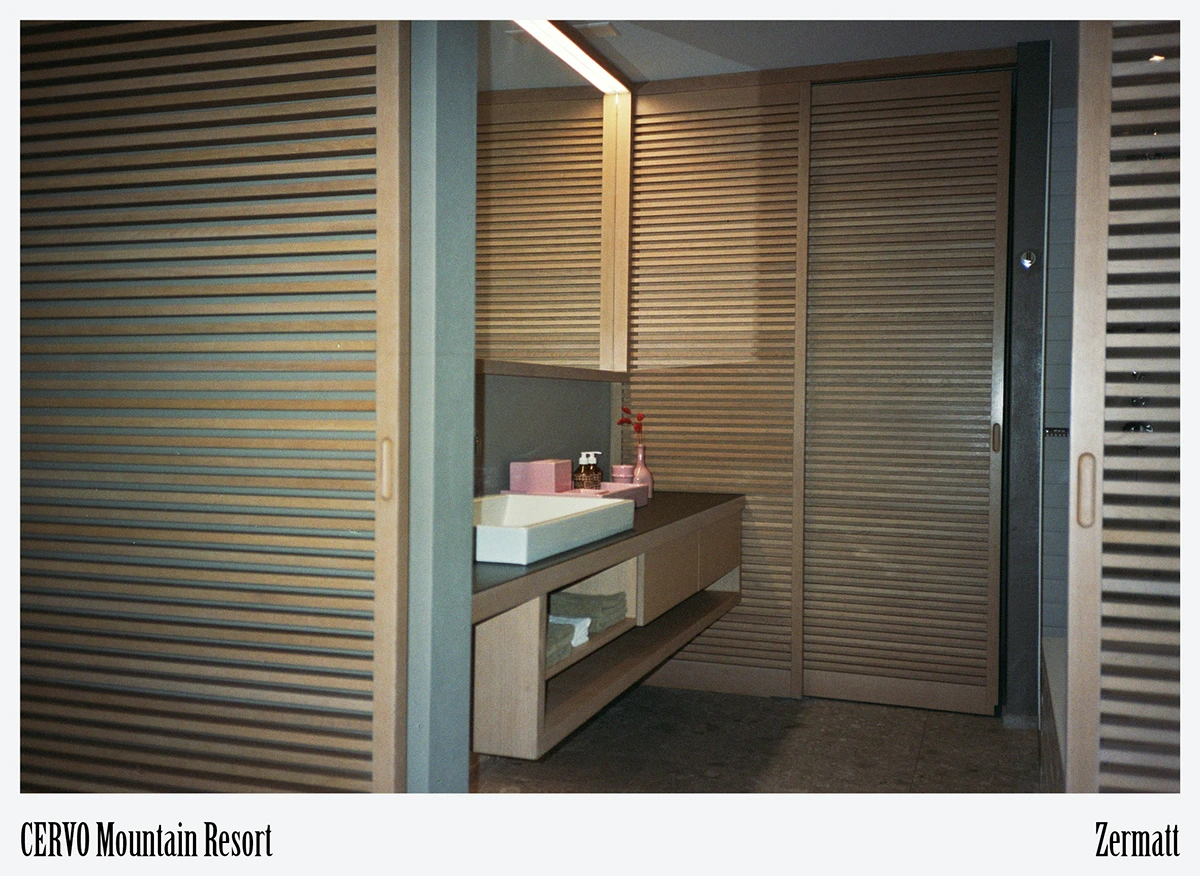
Indigenous communities and global partnerships
Although situated in the Swiss Alps, Cervo’s sustainability program is globally conscious. Through partnerships with organizations like Education For All Morocco, the resort allocates one Swiss franc from every Middle Eastern mezze or lamb tajine served at Bazaar to support the education of girls in remote Berber villages. Following the 2023 earthquake in the High Atlas Mountains, Cervo expanded its involvement, helping to rebuild five boarding houses and supporting the charity’s educational programs.
Support for Indigenous communities is expressed not only through donations but through visibility: by incorporating global influences respectfully into its design and culinary identity, Cervo acknowledges the broader cultural geographies that shape travel and hospitality. The resort avoids appropriation by focusing on collaboration—highlighting origin, crediting tradition, and creating tangible benefits for source communities.
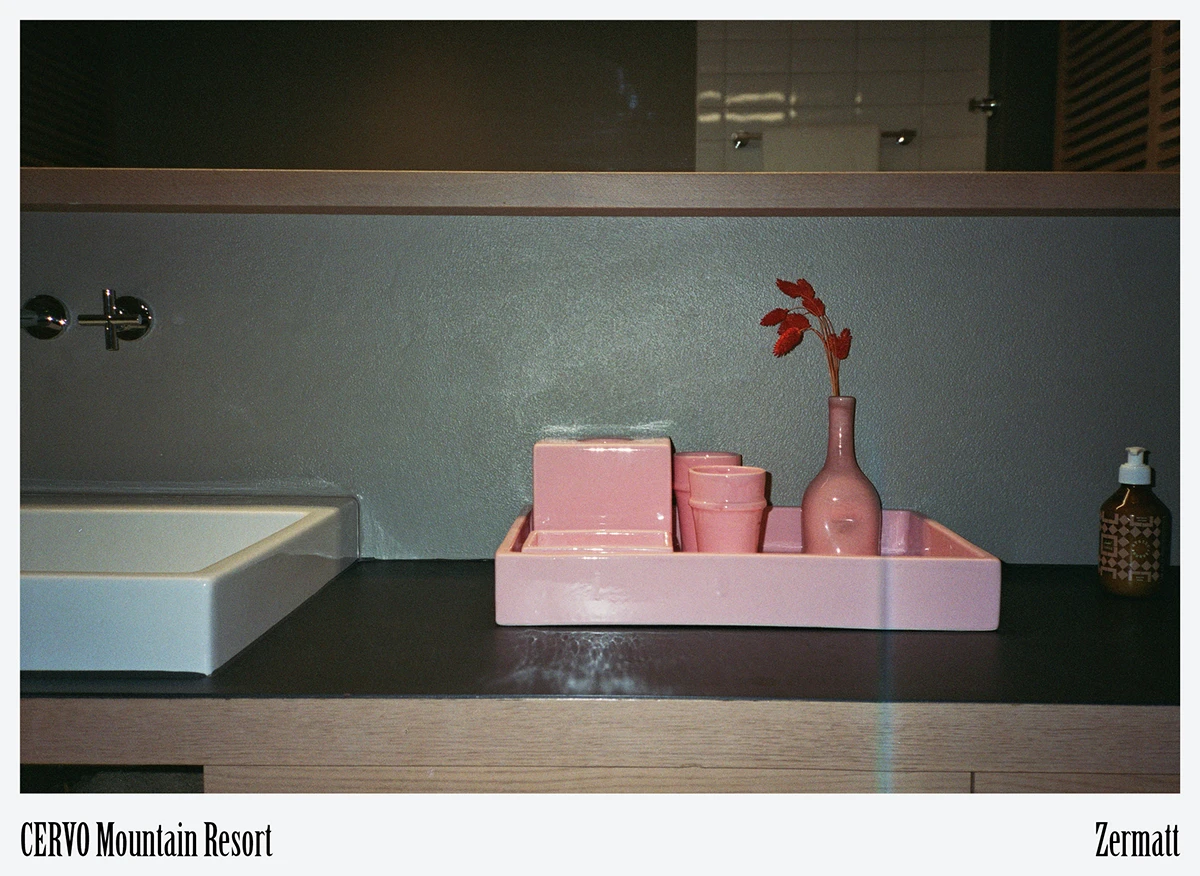
Expanding local ecosystems of responsibility
Sustainability is not a separate department at Cervo—it is an integrated ethos. Staff are trained under the Sustainable Ambassadors program, which assigns each employee a specific area of ecological focus within their daily responsibilities. From kitchen waste management to spa operations, team members lead micro-projects that together form the resort’s annual sustainability action plan.
Cervo’s commitment also includes biodiversity restoration. In 2022, bee colonies were introduced to the property, producing honey for use in the kitchen and spa while supporting pollination of local flora. Outdoor areas are planted with edible and native species, blending aesthetics with agricultural function. These micro-ecologies not only enhance biodiversity but reduce landscaping costs and offer ingredients for in-house use.
Local engagement includes sponsorships for regional sports clubs, support for community events in Zermatt, and partnerships with artisans and food producers. By reinforcing regional economies, Cervo ensures that the resort’s success is shared beyond its boundaries.
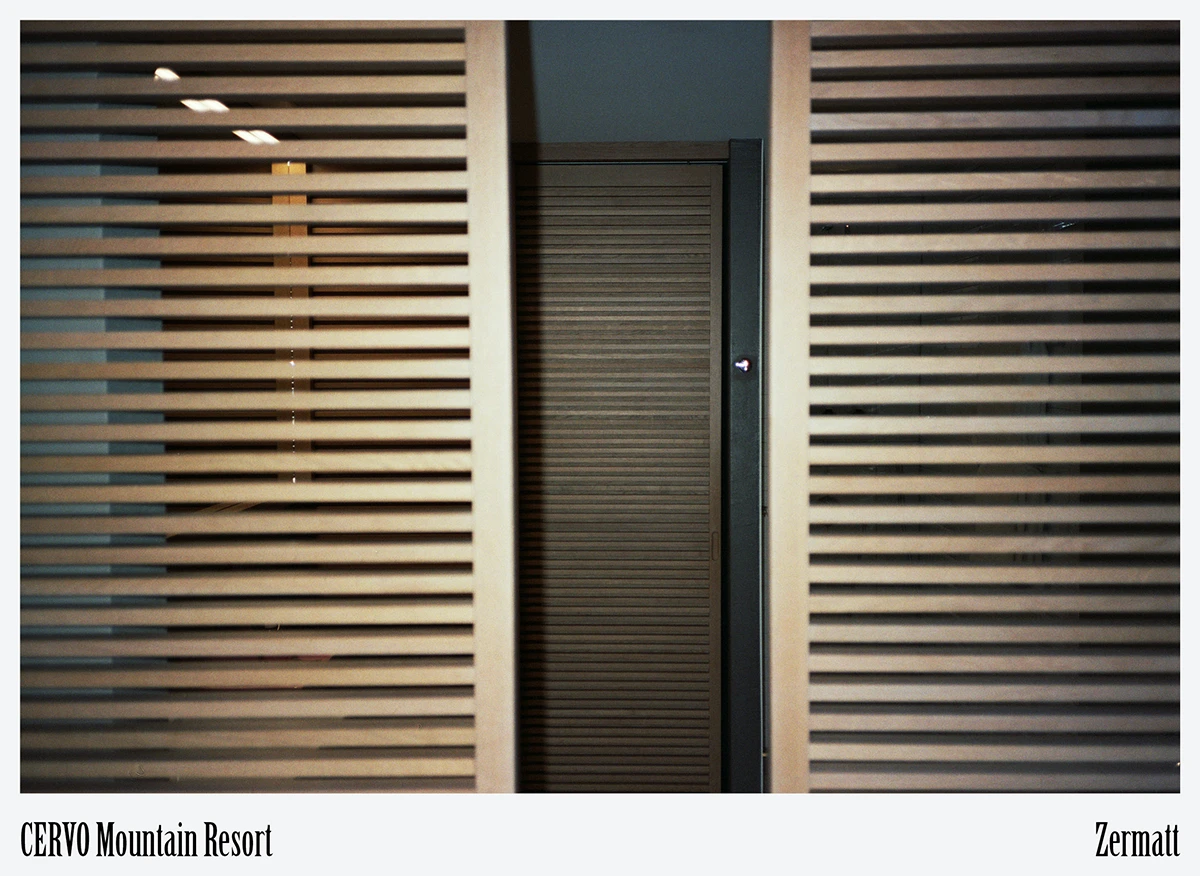
Sustainable hospitality as a cultural offering
Sustainability at Cervo is not presented as a feature, but as a cultural constant. Events throughout the year—from wine tastings and music festivals to educational workshops—are curated with a commitment to ethical practice and cultural preservation. Local sports clubs are sponsored, and community initiatives in Zermatt receive both logistical and financial support.
In December 2022, Cervo became the first hotel in Valais to receive the Ibex Fairstay Platinum certification—the highest standard for sustainable lodging in Switzerland. It is also a member of the Virtuoso luxury travel network, signaling a shift in high-end hospitality where ethics are not an afterthought, but a starting point.
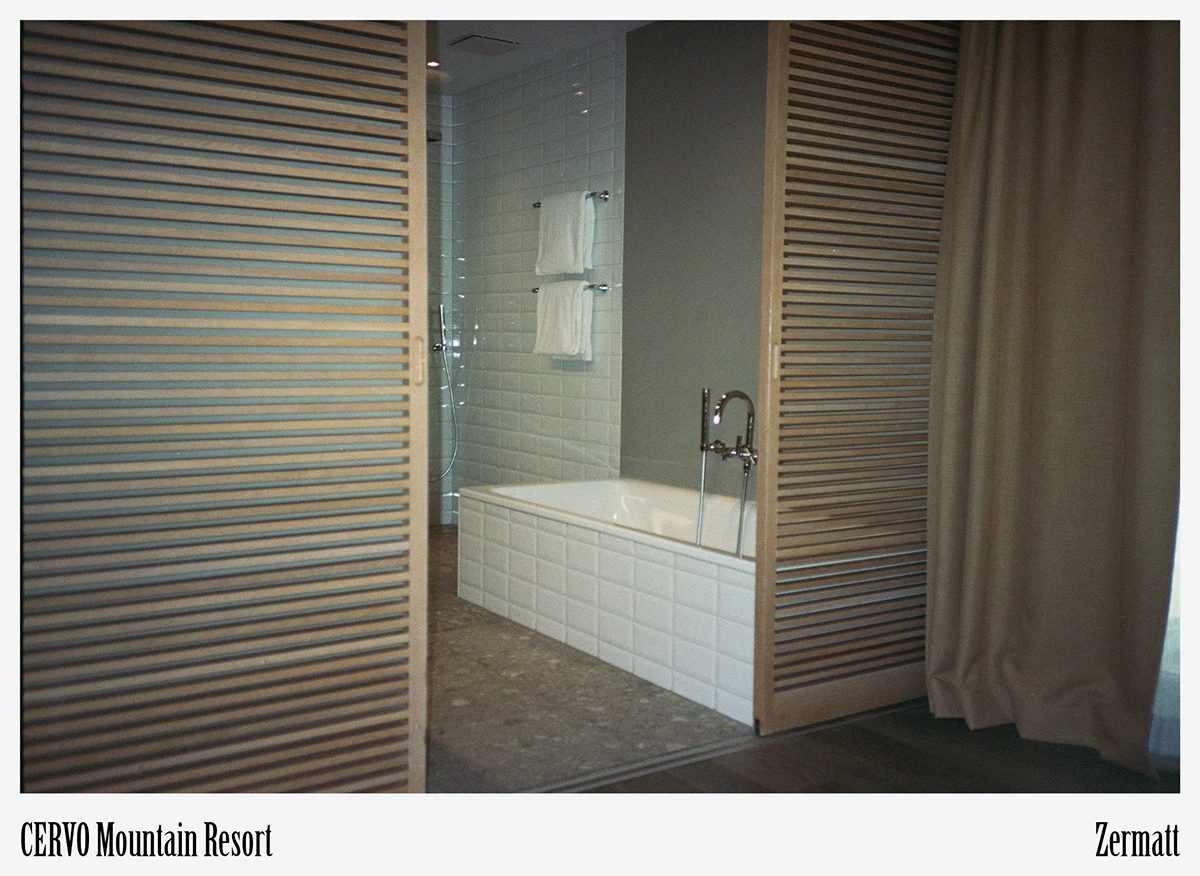
What emerges at Cervo Mountain Resort is a model of alpine tourism that neither sacrifices comfort nor sustainability
Rather, it intertwines them in a system that respects the fragility of its environment while drawing strength from it. The result is a place that feels less like an escape and more like a return—to balance, to slowness, to a form of travel that is not extractive, but reciprocal.
This reciprocity is at the core of Cervo’s design: it informs the material tactility of the rooms, the energy systems underfoot, and the culinary choices that favour biodiversity over abundance. Unlike standard luxury resorts that replicate themselves globally, Cervo is hyper-specific. Its identity is built on what is present and what is possible within a limited radius—materials, people, energy, and knowledge sourced from its immediate geography and shared in transparent, regenerating loops.
In this light, sustainability becomes less a set of strategies and more a cultural practice. A way of asking: what does it mean to host, to inhabit, to harvest, to serve—without depleting? In Zermatt, Cervo tries to respond to these questions by establishing the model of a mountain resort that functions as a testing ground for new forms of embedded, ethical living.
